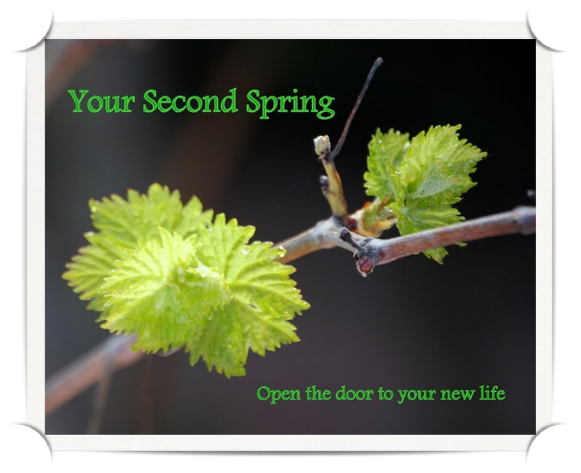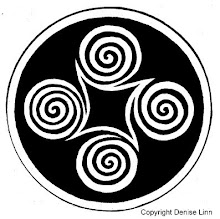Tuesday, June 15, 2010
ROOIBOS TEA
One of my favourite herbal tea is rooibos tea, South Africa's gift to the world. Our family has been drinking it since we moved to South Africa in '92 and ever since we always have few packet of rooibos tea back travelling in our suitcase where ever we go. It grows only in a certain area in South Africa and you can drink it all day long. It is a good evening drink before bed time, because it does not contain any caffeine and it has a calming effect. You can buy rooibos tea bags or loose tea in many health shops but also in supermarkets.
Rooibos is a member of the legume family of plants. The rooibos shrub can grow up to 2 meter in height. The erects red coloured rooibos stems contain many dark green needle shaped leaves. The rooibos shrub produces small yellow flowers in spring through early summer. Each flower produces a one seeded small bean. Rooibos has a long tap root, sometimes up to 2 m in length, enabling the plant to survive periods of drought.
Parts used
Only the rooibos leaves and twigs are used. Rooibos leaves are harvested in summer, cut or chopped and are left to ferment. During the fermentation of the rooibos leaves, some chemicals are oxidized by enzymes resulting in the typical red colour and flavour of rooibos. Unfermented rooibos tea is also used and contains more antioxidants. Unfermented rooibos tea has a yellow color rather than the red colour of fermented rooibos.
Phytochemicals
Aspalathin, Nothofagin, Caffeic Acid, Chrysoeriol, Isoquercitrin, Orientin, Isoorientin, Luteolin, Vitexin, Isovitexin, Lutein, Rutin, Flavonoids, Quercetin, Polyphenols
Medicinal properties
Rooibos has anti-carcinogenic and antimutagenic effects. Rooibos tea is used for its anti-inflammatory and anti-allergic properties. Consumption of rooibos tea may relief fever, asthma, insomnia, colic in infants and skin disorders. Rooibos extracts are used in ointments against eczema. In South Africa it is very common to give rooibos tea to babies who suffer from stomach cramps (colics).
Rooibos is the only known source of the phytochemical aspalathin. In vitro and animal studies have indicated that quercetin and lutein help to prevent cardiovascular disease, some cancers and stroke. Rutin has been associated with the maintenance of blood vessels walls.
Because rooibos contains no caffeine, it is suited for babies and children. The low level of tannins in rooibos will prevent problems with iron absorption.
Sasaki YF et all (Mutat Res 1993;286:221-232) showed in their study ' The clastogenic-suppressing effects of green tea, Po-lei tea and Rooibos tea in CHO cells and mice' that fermented rooibos tea reduced cancer-associated changes in animal cells induced by the certain mutagens both in vitro and in vivo. Other researchers found that rooibos extracts from fermented rooibos leaves reduced cancerous transformation of mouse cells irradiation with x-rays. They found that extracts from unfermented green rooibos tea did not show this protective effect.
Other facts
Rooibos is grown only in the Cederberg area and around the villages Clanwilliam and Citrusdal, which are situated to the north of Cape Town in South Africa. Efforts to cultivate rooibos in other areas or countries with similar climates have failed. Apparently rooibos needs a very specific climate and soil to grow. Rooibos tea has always been very popular in South Africa. To make the popular rooibos tea, the dried rooibos leaves are boiled in water and is often consumed with milk. Rooibos tea is much appreciated because it does not contain caffeine and is low in tannins.
Other names:
Rooibos tea plant, red bush, red tea.
Source: http://www.phytochemicals-info.com/
Rooibos is a member of the legume family of plants. The rooibos shrub can grow up to 2 meter in height. The erects red coloured rooibos stems contain many dark green needle shaped leaves. The rooibos shrub produces small yellow flowers in spring through early summer. Each flower produces a one seeded small bean. Rooibos has a long tap root, sometimes up to 2 m in length, enabling the plant to survive periods of drought.
Parts used
Only the rooibos leaves and twigs are used. Rooibos leaves are harvested in summer, cut or chopped and are left to ferment. During the fermentation of the rooibos leaves, some chemicals are oxidized by enzymes resulting in the typical red colour and flavour of rooibos. Unfermented rooibos tea is also used and contains more antioxidants. Unfermented rooibos tea has a yellow color rather than the red colour of fermented rooibos.
Phytochemicals
Aspalathin, Nothofagin, Caffeic Acid, Chrysoeriol, Isoquercitrin, Orientin, Isoorientin, Luteolin, Vitexin, Isovitexin, Lutein, Rutin, Flavonoids, Quercetin, Polyphenols
Medicinal properties
Rooibos has anti-carcinogenic and antimutagenic effects. Rooibos tea is used for its anti-inflammatory and anti-allergic properties. Consumption of rooibos tea may relief fever, asthma, insomnia, colic in infants and skin disorders. Rooibos extracts are used in ointments against eczema. In South Africa it is very common to give rooibos tea to babies who suffer from stomach cramps (colics).
Rooibos is the only known source of the phytochemical aspalathin. In vitro and animal studies have indicated that quercetin and lutein help to prevent cardiovascular disease, some cancers and stroke. Rutin has been associated with the maintenance of blood vessels walls.
Because rooibos contains no caffeine, it is suited for babies and children. The low level of tannins in rooibos will prevent problems with iron absorption.
Sasaki YF et all (Mutat Res 1993;286:221-232) showed in their study ' The clastogenic-suppressing effects of green tea, Po-lei tea and Rooibos tea in CHO cells and mice' that fermented rooibos tea reduced cancer-associated changes in animal cells induced by the certain mutagens both in vitro and in vivo. Other researchers found that rooibos extracts from fermented rooibos leaves reduced cancerous transformation of mouse cells irradiation with x-rays. They found that extracts from unfermented green rooibos tea did not show this protective effect.
Other facts
Rooibos is grown only in the Cederberg area and around the villages Clanwilliam and Citrusdal, which are situated to the north of Cape Town in South Africa. Efforts to cultivate rooibos in other areas or countries with similar climates have failed. Apparently rooibos needs a very specific climate and soil to grow. Rooibos tea has always been very popular in South Africa. To make the popular rooibos tea, the dried rooibos leaves are boiled in water and is often consumed with milk. Rooibos tea is much appreciated because it does not contain caffeine and is low in tannins.
Other names:
Rooibos tea plant, red bush, red tea.
Source: http://www.phytochemicals-info.com/
Labels:
health food,
herbal tea,
nutrition,
tea
Subscribe to:
Posts (Atom)














